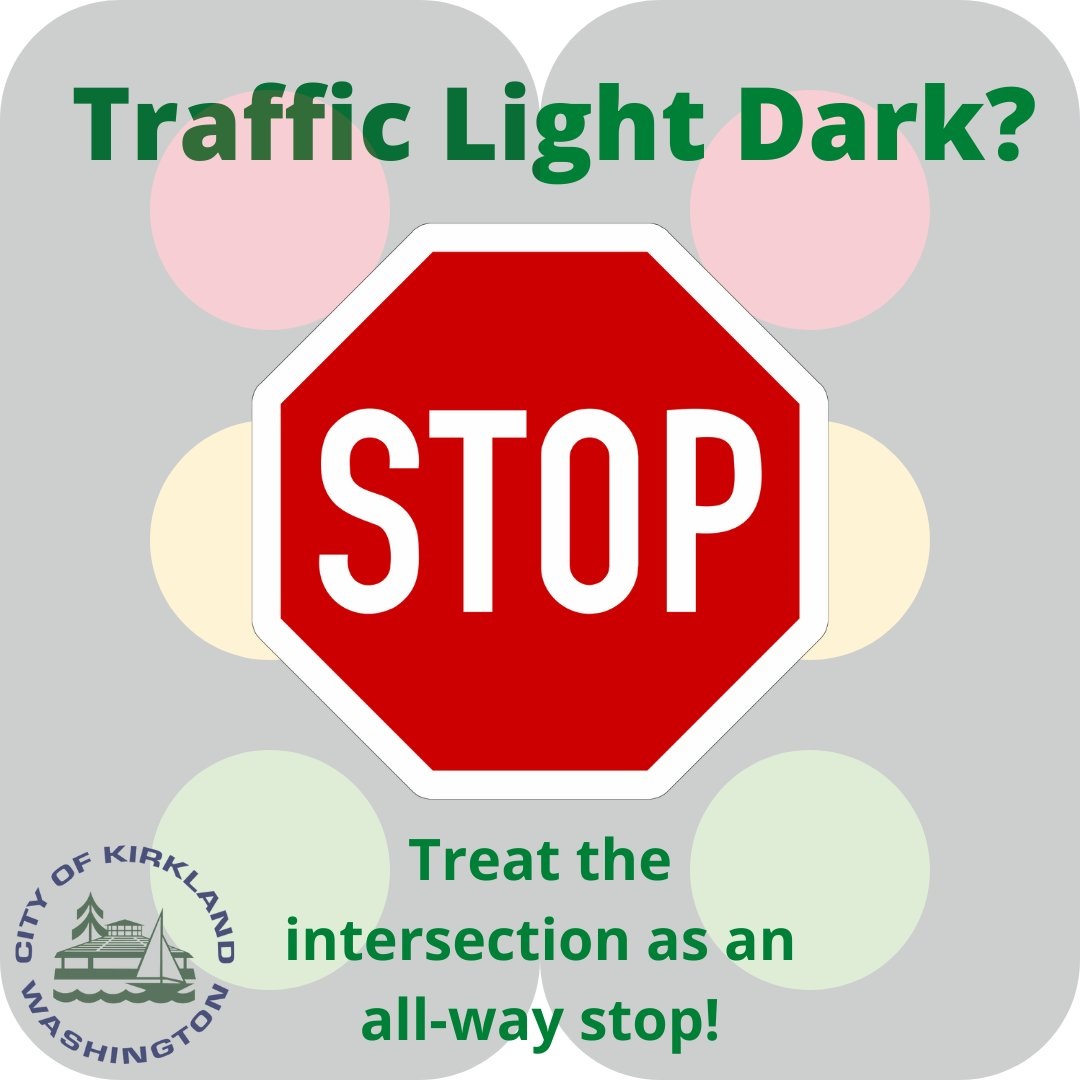Power utilities for the City of Kirkland are served by Puget Sound Energy (PSE). Report power outages directly online, by calling 1-888-225-5773, or using the PSE app. Do not call 9-1-1 to report power outages. Check the PSE Outage Map to get current information about outages, including estimated restoration times.
 Please remember, when a power outage impacts a traffic control signal, state law guides drivers to treat the signal as an all-way stop.
Please remember, when a power outage impacts a traffic control signal, state law guides drivers to treat the signal as an all-way stop.
Sometimes during winter storms, the weight of the snow causes tree branches to snap and come down in our roadways. While Police, Fire and Public Works staff work hard as a team to clear downed trees from public areas and roadways, please remember that when trees and powerlines interact, trained Puget Sound Energy staff must respond. Whether it’s a fallen branch, a tree leaning on a power line, or an actual power line lying on the ground, City first responders and Public Works staff are not able to make first contact. PSE technicians must clear all electrical hazards.
Please contact PSE at 888-225-5773 any time you observe a tree or a branch laying on or near a powerline. Please visit the Puget Sound Energy website to learn more about what to do if you encounter downed power lines: Puget Sound Energy.
When the power goes out, make sure you shut off all major appliances
Kirkland Fire Prevention Bureau Fire Investigators have investigated multiple fires over the last year that were directly caused by someone leaving food on the stove and the burner on during a power outage. Many newer model stoves have an automatic shut off feature, sometimes referred to as an intelligent stove shut off device, but the legacy models found in many of our homes do not. When the power goes out, always remember to shut off all major appliances, including your stove, oven and space heaters. For added safety, unplug smaller appliances, like hairdryers and curling irons, to avoid damage from power surges.
Make this the first thing that you do when you’re faced with a power outage! When those lights go out, grab your flashlight and shut off all your stovetop burners, click off your oven and unplug those space heaters.
For more information on what to do when the power goes out, please visit our Power Outage webpage by the Kirkland Office of Emergency Management.
Generator safety
Never use a generator, grill, camp stove or other gasoline, propane, natural gas or charcoal-burning devices inside a home, garage, basement, crawlspace or any partially enclosed area. Keep these devices outdoors, away from doors, windows and vents that could allow carbon monoxide to come indoors. Plug equipment directly into the generator. Use heavy-duty, outdoor-rated extension cords that are in good working condition and have a wire gauge that can handle the electric load of any connected appliances.
Find these and other generator safety tips at: Ready.gov.
Important Note: Generators produce carbon monoxide, an odorless, colorless gas that can kill you. CO is found in fumes produced any time you burn fuel in cars or trucks, small engines, stoves, lanterns, grills, fireplaces, gas ranges, portable generators or furnaces. Sometimes referred to as the “invisible killer,” CO can build up indoors and poison people and animals who breathe it unknowingly.
Carbon monoxide alarms (CO alarms), should be installed in a central location outside each sleeping area and on every level of the home including the basement. CO alarms can be placed on walls or ceilings but should be kept away from direct sunlight and humid areas. Follow the manufacturer’s instructions to learn best practices for placement and height.